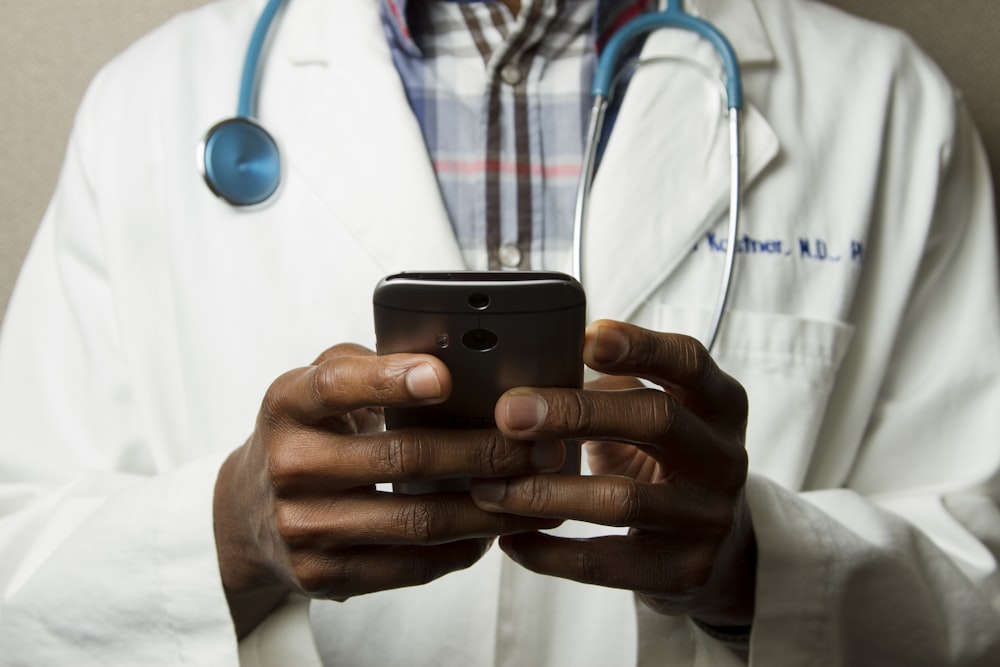The advent of on-demand service apps has transformed various industries, and the healthcare sector is no exception. Uber for doctors is a concept that aims to make healthcare services more accessible and convenient for patients by connecting them with qualified medical professionals through a digital platform. In this blog post, we will explore the concept of Uber for doctors, its benefits, key features, and tips for creating a successful app.
Understanding the Concept of Uber for Doctors
Uber for doctors is an on-demand healthcare service app that allows patients to book appointments with doctors, consult with them virtually, and access medical services right from their smartphones. The app functions as a platform that connects patients with healthcare professionals in a quick and efficient manner, eliminating the need for patients to visit a clinic or hospital physically. This innovative approach to healthcare delivery is designed to cater to the growing demand for more accessible and convenient healthcare services.
Benefits of Uber for Doctors
Convenience: Patients can book appointments and consult with doctors from the comfort of their homes, saving time and effort involved in traveling to a clinic or hospital.
Access to a wide range of specialists: The app provides access to various medical professionals, enabling patients to choose the right specialist for their specific health concerns.
Improved patient engagement: By offering virtual consultations, doctors can engage with their patients more effectively, leading to better patient satisfaction and adherence to treatment plans.
Cost-effective: Virtual consultations can be more cost-effective for both patients and doctors compared to traditional in-person appointments.
Enhanced medical record management: The app allows for secure storage and easy access to patient medical records, streamlining the process for both doctors and patients.
Essential Features for an Uber for Doctors App
User registration and profiles: Both patients and doctors should be able to create their profiles, providing relevant information such as contact details, medical history, and qualifications.
Search and filters: Patients should be able to search for doctors based on their specialty, location, availability, and ratings.
Appointment scheduling: The app should allow patients to book, reschedule, or cancel appointments with doctors seamlessly.
Video consultation: A built-in video chat feature for virtual consultations between patients and doctors is essential.
Prescription management: Doctors should be able to provide electronic prescriptions to patients through the app.
In-app payment: Secure in-app payment options for consultation fees and other services should be provided.
Ratings and reviews: Patients should be able to rate and review doctors, helping others make informed decisions.
Notifications and reminders: The app should send notifications and reminders to both patients and doctors regarding upcoming appointments and other important updates.
Tips for Creating a Successful Uber for Doctors App
Focus on user experience: Prioritize user experience by creating an intuitive and easy-to-use app interface that caters to users of all skill levels.
Ensure data privacy and security: Implement robust security measures to protect sensitive patient and doctor information, adhering to industry best practices and regulations.
Invest in marketing and promotion: Utilize a mix of online and offline marketing techniques to create awareness about your app and attract users.
Offer exceptional customer support: Provide a dedicated support system where users can easily report issues and receive prompt assistance.
Continuously update and improve the app: Regularly update the app with new features and improvements based on user feedback and industry trends.
Challenges of Uber for Doctors
While Uber for doctors has the potential to revolutionize the healthcare industry, there are several challenges that businesses and medical professionals may face when implementing such a service. Understanding these challenges and finding appropriate solutions is crucial to the success of an Uber for doctors app.
Regulatory Compliance: Healthcare is a heavily regulated industry, with strict guidelines and requirements for licensing, data protection, and patient privacy. Ensuring that the Uber for doctor app complies with all applicable local, national, and international regulations can be a complex and time-consuming task.
Data Privacy and Security: Protecting patient information and maintaining privacy is of utmost importance in the healthcare industry. The app must incorporate robust security measures and encryption to safeguard sensitive patient data, while also complying with privacy laws such as HIPAA in the United States or GDPR in the European Union.
Quality Assurance: Ensuring that the medical professionals using the platform are qualified and competent is vital for maintaining the credibility of the service. Implementing a thorough vetting process and regularly monitoring the performance of doctors on the platform can help maintain high-quality services.
Integration with Existing Systems: Many healthcare providers already have their systems for managing patient records, billing, and scheduling. Integrating the Uber for doctors app with these existing systems can be challenging, requiring collaboration with multiple stakeholders and careful planning.
Adoption and Resistance: As with any new technology, there may be resistance from both patients and doctors in adopting an Uber for doctors app. To overcome this challenge, businesses must educate users about the benefits of the platform and provide training and support to help them adapt to the new system.
Network Connectivity and Technical Issues: A seamless video consultation experience requires stable and high-speed internet connectivity. In areas with poor network connectivity or technical issues, the quality of the service may be compromised, leading to user dissatisfaction.
Competition: The on-demand healthcare market is becoming increasingly competitive, with numerous startups and established healthcare providers offering similar services. Developing a unique selling proposition (USP) and differentiating your Uber for doctors app from competitors is essential for attracting and retaining users.
Monetization and Sustainability: Generating revenue and ensuring the long-term sustainability of the Uber for doctors app can be challenging. Businesses must find the right balance between keeping the service affordable for patients and generating sufficient revenue to cover operational costs and growth.
By addressing these challenges head-on and finding innovative solutions, businesses can develop a successful Uber for doctors app that offers a convenient and accessible healthcare solution for patients while also benefiting medical professionals.
Conclusion
In conclusion, Uber for doctors has the potential to transform the healthcare industry by providing convenient and accessible medical services to patients. Despite the challenges associated with regulatory compliance, data privacy, quality assurance, integration, adoption, network connectivity, competition, and monetization, businesses that can effectively navigate these obstacles can create a successful on-demand healthcare platform.
CronJ, as an expert in the development of Uber for doctors apps, understands the intricacies of this rapidly evolving industry. By leveraging their technical expertise and industry knowledge, CronJ can help businesses develop a robust, secure, and user-friendly app that addresses the challenges mentioned above while also standing out from the competition.
With the right partner, like CronJ, businesses can capitalize on the growing demand for on-demand healthcare software development services, providing patients with a convenient, reliable, and cost-effective solution while also empowering medical professionals to expand their reach and offer services more efficiently.




